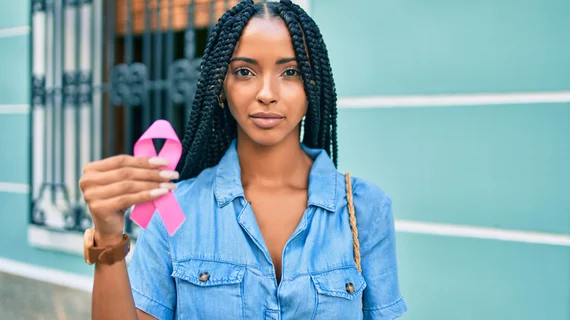‘Double whammy’: Pandemic worsens breast cancer screening disparities among minority women
COVID-19 has only worsened breast cancer screening disparities among minority women, according to new research published Monday in JAMA Network Open.
Numerous studies have detailed the pandemic’s outsize impact on mammography volumes, with some providers seeing drops as severe as 90% at certain points. Fresh information from Washington State University is now underlying how these trends are hitting women of color harder than others.
Comparing Evergreen State mammography rates between April-December of 2020 against the same period in 2019, scientists found stark differences. The nearly 28,000 mammograms completed post-pandemic last year represented a 49% drop. The decrease was even worse among Black (54%), American Indian/Alaskan native (61%), and Hispanic patients (64%).
“We know that the COVID-19 virus has had disproportionate impacts on certain populations, including racial and ethnic minority groups,” senior study author Pablo Monsivais, PhD, an associate professor in Washington State University’s college of medicine, said in a statement. "What our study adds is that some of the secondary effects of the COVID-19 pandemic are also disproportionately impacting those populations, so it's a double whammy."
For the study, Washington State teamed with MultiCare, analyzing data from the nonprofit health system’s eight hospitals and 230 clinics. Patients received nearly 56,000 mammograms over nine months in 2019 prior to the pandemic cutting that number in half last year. Mirroring the overall rate, white women saw screening exams drop 49% year-over-year, while rural and city dwellers witnessed 59% and 50% drops, respectively. Those on Medicaid or who self-pay for care experienced greater screening reductions than those on commercial insurance plans.
As a follow-up, Monsivais et al. plan to explore the factors that forced women to miss their mammograms in 2020, while also adding colon and lung cancer screening to future research. Those involved said job loss, stress over school and daycare closures, and fear of contracting COVID-19 may all have played a part.
“One of the things we have seen this past year is that women who were pretty good about keeping up with screening remained fearful about going in even after healthcare facilities had opened back up for routine screening," co-author Jeanne Robison, PhD, an oncology nurse practitioner and lead researcher with MultiCare’s Cancer and Blood Specialty Centers, said in statement. “I've had to talk some of my patients into coming in, however, because even when protocols were in place to safely offer breast cancer screening, there remained a perceived risk.”

